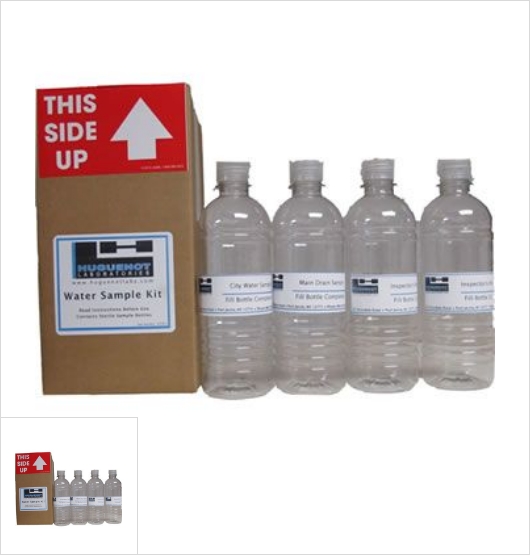MIC Test Kits
When a request is received for MIC testing of your sprinkler system, Huguenot Laboratories will provide you with a water sample test kit that is specific to the needs of your current sprinkler system. Depending on which analysis is indicated, water testing services involve capturing sample(s) of the water. The water supply sources can be obtained from the main water supply, main drain, inspector’s port, and in some cases the city fire hydrant that is closest to the building. Standing water found in mains can be tested in place of the main drain and/or inspector’s port. Samples are then returned to Huguenot Laboratories for a full analysis unless MIC only is indicated.
A full analysis includes an Anaerobic and Aerobic MIC evaluation, 6 sample culture studies (8-day incubation), 23 mineral analysis testing, and 3 physical tests to determine any corrosive nature of the water and to determine if minerals are dropping out of the solution, thus causing deposition. This testing procedure is the best way to determine the extent of MIC and generalized corrosion that is occurring in the system. Contact Huguenot Laboratories for pricing.
